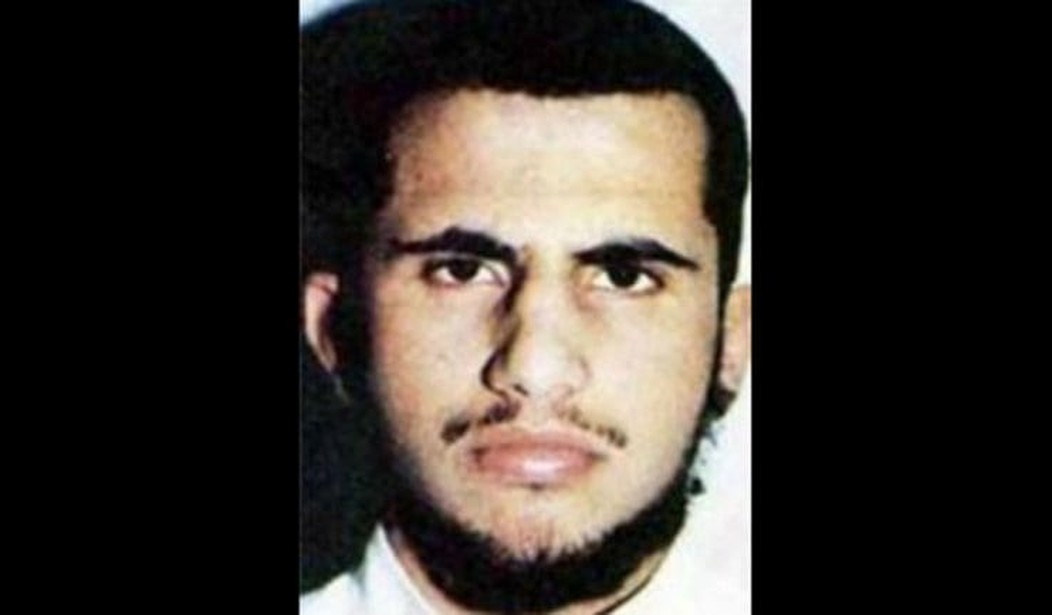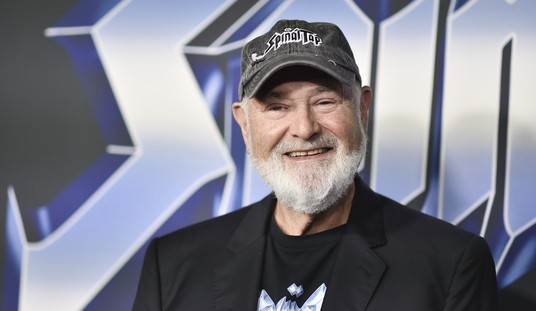WASHINGTON — On the evening of Sept. 17, rumors began swirling across the Internet that al-Qaeda leader Ayman al-Zawahiri had been killed in an airstrike in Waziristan.
Then came the tweets from jihadist accounts that Zawahiri was alive and kicking, “according to Khorasan sources.”
“News coming from Khurasan Mujahideen saying Sheikh Zawahiri is safe & sound! Alhamdulillah,” tweeted an English-language jihadist account.
Khorasan, on the map circulated by ISIS, includes Iran, reaching deep into central Asia through Afghanistan and Turkmenistan and swallowing the Indian subcontinent. The sudden focus on this name comes in the same month that Zawahiri announced a long-planned expansion into India, Burma, Bangladesh and beyond — the Al-Qaeda Jihad Organization in South Asia.
It’s also the name for a chapter of al-Qaeda in Syria, led by the former commander of al-Qaeda in Iran.
The 9/11 Commission Report detailed the longstanding, cozy relationship between the Islamic Republic and al-Qaeda that showed no signs of abating. Iran claims it had 33-year-old Kuwaiti citizen Muhsin al-Fadhli under house arrest instead of giving safe haven to Zawahiri’s deputy. He reportedly moved to northern Syria to set up shop about a year ago.
The interim nuclear agreement that freed Iran of some of its global sanctions burden was reached a few months later.
But the al-Qaeda commander’s activities haven’t been a secret. Since October 2012, there has been a $7 million State Department ransom on al-Fadhli’s head. “Al-Fadhli was among the few trusted al-Qaida leaders who received advance notification that terrorists would strike the United States on September 11, 2001,” said the Department’s Rewards for Justice program back then. “…Al-Qaida elements in Iran, led by al-Fadhli, are working to move fighters and money through Turkey to support al-Qaida-affiliated elements in Syria. Al-Fadhli also is leveraging his extensive network of Kuwaiti jihadist donors to send money to Syria via Turkey.”
Zawahiri has kept the names of those working in the Syria cell close to the vest.
Foolishly or prudently, some in Washington are assuming ISIS is too preoccupied with its expansion of the caliphate to focus on attacks in Europe and the United States. There’s no question about the MO of Khorasan, though, which is enjoying safe haven in Syria while focused expressly on priming European or American fighters for attacks abroad.
Earlier this month, National Counterterrorism Center director Matthew Olsen said in a speech that recruitment is already well under way.
“In Syria, veteran al-Qaeda fighters have traveled from Pakistan to take advantage of the permissive operating environment and access to foreign fighters,” Olsen said. “They are focused on plotting against the West.”
At Thursday’s briefing with reporters, White House press secretary Josh Earnest was asked for the first time about how much President Obama was concerned with the threat posed by this al-Qaeda offshoot and the effect of the threats on heightened airport security.
“You’re asking me about an intelligence issue, obviously, so there’s — I’m limited in what I can say, but what I can tell you is that our intelligence professionals have long spoken about the host of terror threats that are emanating from Syria,” Earnest replied, noting that the White House has talked about “the challenges posed by foreign terrorist fighters.” He added that Obama would address the same general concern at the United Nations this week.
“At the same time, I’m not in a position to provide granular detail from here about specific threats or potential cells that may be operating and seeking to carry out attacks against American interests. Frankly, doing so would be counterproductive to our whole-of-government approach to countering this challenge,” he said.
The Associated Press reported Sept. 13 that Khorasan has been working with bomb makers from al-Qaeda in the Arabian Peninsula — which nearly succeeded in taking down a Northwest Airlines flight in 2009 with an underwear-concealed plastic explosive — to come up with new ways to destroy airliners.
“Let me just add to that by saying, generally, that the Obama administration and our law enforcement and national security professionals remain vigilant about threats that are emanating from Syria and other places around the globe. And this requires the constant evaluation of our security posture. It often will require the tweaking of our security posture to change certain elements in a way that would strengthen our defenses in one area,” Earnest said. “And sometimes these changes to our homeland security posture are pretty evident to the traveling public and sometimes they aren’t. But we remain vigilant about the threats that continue to emanate from al-Qaeda and their affiliates all around the globe.”
But despite the administration giving general national-security responses to questions about a specific group the name of the shadowy Khorasan cell quickly began spilling onto the airwaves, where members of Congress acknowledged, in the words of House Intelligence Committee Chairman Mike Rogers (R-Mich.) on Friday, “it’s the most immediate threat that we face.”
“We’ve talked about before the forward-deployed al-Qaeda elements. This certainly would fit that criteria,” Rogers said. “…We know that there’s been relationships between al-Qaeda in the Arabian Peninsula, where that technology, if you will, is being developed to try to get bombs on aircrafts. And these folks — certain al-Qaeda operatives, sprinkled around, if you will.”
“And, remember, they are very eager to get, in their terms, points on the board, if you will, on a terrorist attack to show the world they’re still the leading jihadist organization. And that’s what’s so concerning about it,” the chairman continued. “And then you see these relationships that happen, you know, it’s something that we need to worry about. And oh, by the way, we need to worry about ISIL as well.”
Rep. Adam Schiff (D-Calif.), a leading Democrat on the Intelligence panel, told Fox on Sunday that al-Qaeda franchises in Syria pose “a more immediate threat to our homeland than ISIS does at the present.”
“They’re trying to work with AQAP bomb makers to smuggle on bombs on our planes. We cannot lose sight of that threat. That’s really the more immediate threat to Americans,” Schiff said.
Rep. Peter King (R-N.Y.) disagreed with Schiff, saying ISIS and al-Qaeda are “equal threats.”
“They’re coming at us and we have to be on our guard at all times,” King said. “If ISIS went into Australia, they could certainly come into the U.S. In 2011, they attempt to attack Fort Knox. So, all of them, I say, are threats we cannot let our guard down at all.”
Sen. Dianne Feinstein (D-Calif.) said Sunday on CBS that “each one of these” — ISIS, AQAP, al-Qaeda in Syria — “is capable of one day, some sooner than later, of a strike against our country.”
“So this is not a good situation,” Feinstein added.
The Khorasan threat highlights the role Iran has played in sheltering al-Qaeda figures — just as the U.S. sits down this week in New York for more nuclear negotiations with the country it acknowledges is a state sponsor of terrorism.
“We’re at the beginning of a very intense period here, and one never knows where it will go or whether you’ll get to an issue and hit a wall or whether you’ll break through. But everyone has come here – everyone, all parties – clearly intent on seeing if we can’t work through some of these very difficult issues,” a senior administration official told reporters in a background briefing about the P5+1 talks on Friday.
Not mentioning Iran’s terror role in the briefing, the official made clear that they’ll be ready to pull the trigger on sanctions relief.
“We’re well aware that sanctions relief is a critical part of any agreement. Iran has said so themselves, as you note. And indeed, we have done extensive work on what will be necessary to suspend and then ultimately lift those sanctions,” the official said. “…We believe we can offer very meaningful relief. We understand and have listened carefully to what Iran is looking for. We hope that Iran is listening very closely to what is necessary to obtain that relief.”









Join the conversation as a VIP Member